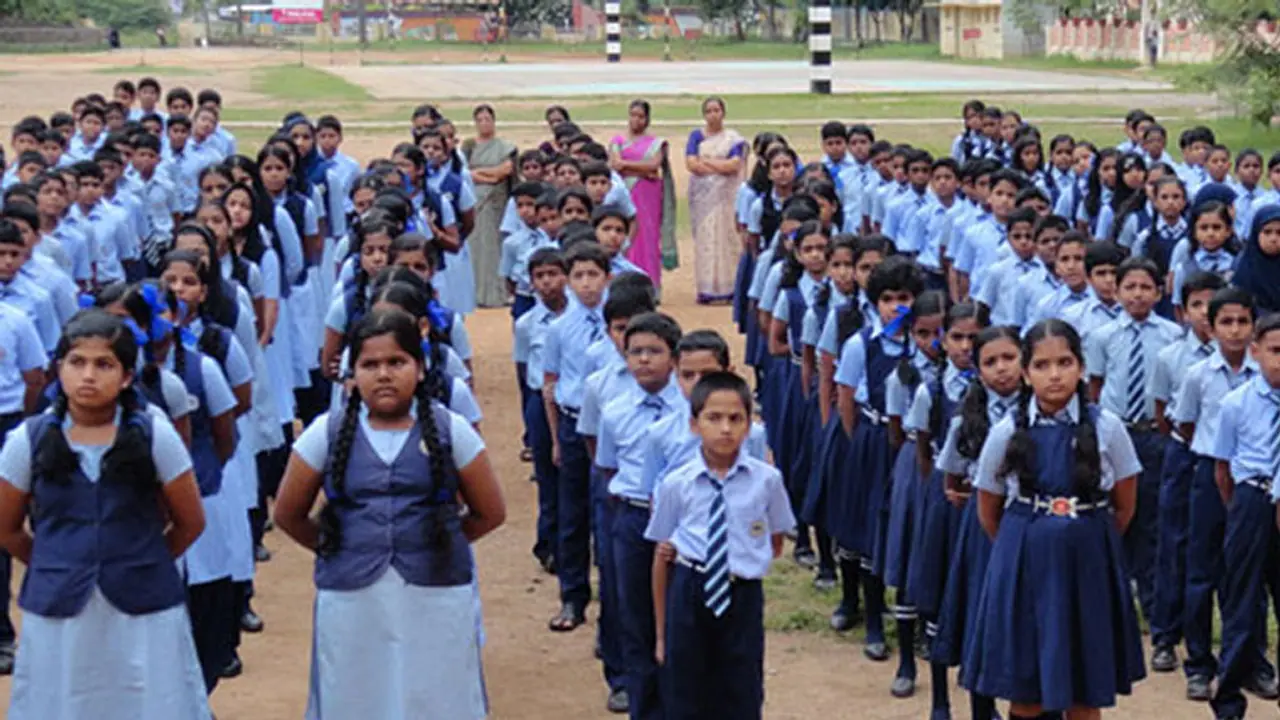15 lakh State Board students across Karnataka may not get their textbooks on time May 2017, the new school year starts and no decision has been reached by the government

15 lakh State Board students across Karnataka may not get their textbooks on time, because of an ideological tussle between the BJP and affiliated organisations and the Text Book Revision Committee, headed by Prof. Baraguru Ramachandrappa, says a report in Deccan Chronicle. The books have not gone for printing as yet.
The revised syllabus for the 75,000-odd state board schools in Karnataka, which was supposed to be used in 2017, will be similar to the CBSE one, and the Textbook Revision Committee (TRC) presented the revised textbooks to the State government in December 2016. The TRC was formed in 2015, tasked with bringing state board textbooks on par with central board books and removing elements of saffronisation.
While TRC has revised the textbooks for classes 1 to 10, Primary and Secondary Education Minister Tanveer Sait is all set to adopt NCERT textbooks for Classes 9 and 10 and he wants some of books translated into Marathi, Tamil, Telugu, Kannada and this has led to a standoff between the two parties.

Here’s a recent example of how politics wants constant changes in school textbooks. Former Human Resource Development Minister Smriti Irani, said that the Vedas, the Upanishads and other ancient Hindu texts should be introduced in the classrooms.
Unfortunately, both BJP and the Congress before it, have used these textbooks as a tool to promote their own ideologies and erase or add history/facts according to their beliefs. Education in India is the responsibility of both the state governments and the centre. A state textbook board formulates curriculum based on the guidelines specified by the National Council of Education Research and Training (NCERT).
Also read: Here's why the Right To Education fails in Karnataka
Dr. Hiren Gohain, a Marxist literary critic, poet and social scientist in an article for the Economics and Political Weekly, writes how the changing climate of political opinion in the centre makes for these developments. “There is now a change in the climate of opinion which makes critical references to traditions of different indigenous religion acts taboo. To put it bluntly there is a confusion between legitimate pride in one's heritage and an over-sensitive indeed aggressive attitude towards any critical interrogation of that heritage. It is common to assume that such symptoms are passing whims and fads of those who occupy positions of power.
“However, in this process the leanings have been observed to be a narrow, bigoted version of the spiritual banking on the Hindu heritage. Saffronisation of education is part of a far-reaching agenda to reverse historic trends and the kind of education envisaged in the new syllabus of the NCERT is quite contrary to the spirit of the constitution.”

Now, by the time the two parties come to a decision, the period for printing these textbooks will be running out. What will the students follow? That which the committee is proposing or study those books in translation as wanted by the minister? Who stands to lose? Not minister or the TRC, but the future of the students who use them as stepping stones to growth and intellectual development.
In May 2017, the new school year starts and no decision has been reached by the government. This unnecessary show of power by the state can push the student’s schedule haywire and then expecting them to adjust to the changes in a matter of months will be hard.
Also read: Karnataka's textbooks caught in Saffron vs. appeasement debate
A possible solution to this could be the removal of the role of the Centre and State from textbook scenario altogether. Let them look at the overall education but not dictate terms when it comes to what they read in school otherwise by the time the children come out of school, with these changing syllabi, imagine the half-baked information they will be carrying out.
